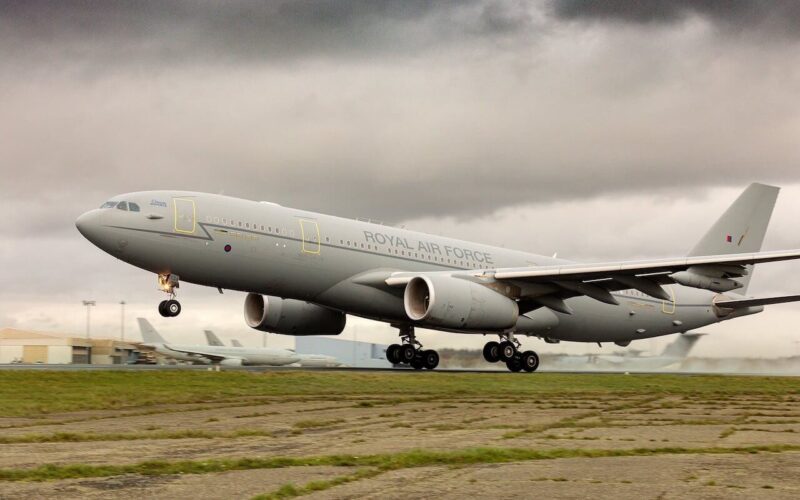For the first time, a military aircraft has flown in the UK using 100% sustainable aviation fuel on all engines.
The Royal Air Force, Airbus, and other industry partners carried out the flight on November 16, 2022 using the RAF Voyager, the military variant of an Airbus A330.
The 90-minute flight, which was powered entirely by 100% sustainable aviation fuel (SAF), was a joint endeavor between the RAF, DE&S and industry partners Airbus, AirTanker and Rolls-Royce, with the fuel supplied by Air bp.
The flight was manned by a combination of RAF, Rolls-Royce and Airbus flight test crew and took off from the RAF Brize Norton in Oxfordshire.
The Royal Air Force and industry partners have carried out a world-first 100% sustainable fuel flight using a military aircraft of its size, and the first of any aircraft type in the UK.
— Royal Air Force (@RoyalAirForce) November 18, 2022
Full story: https://t.co/7aTNnByEd2 pic.twitter.com/ZVL3xqjf05
The flight was operated with both aircraft’s engines powered by 100% SAF. Engineers from Airbus’ Commercial Aircraft and Defence and Space divisions have been working with the RAF, Rolls-Royce and Airtanker testing the aircraft’s performance and handling on the ground and in the air prior to the flight.
“The Royal Air Force has flown the UK’s first military air transport flight using 100% sustainable aviation fuel on one of their operational Voyager aircraft,” UK’s defense minister Baroness Goldie said in a statement.
Goldie added: “They should be rightly proud of this achievement; it is a breakthrough moment for the RAF and an exciting development for the MOD.”
Outside the UK, Germany is another country well on its way to using 100% SAF in its military aircraft. In June 2022, Airbus said that it is working to provide the Luftwaffe with a technical allowance to commence A400M flight trials with loads of up to 50% Sustainable Aviation Fuel (SAF). The plans included conducting a one-engine flight test with SAF, and a further four-engine trial in 2023.
Studies of the use of SAF in the military began as early as 2007 when the US Defense Advanced Research Projects Agency (DARPA), and Honeywell’s Universal Oil Products (UOP) Renewable Jet Fuel Process partnered to produce renewable military jet fuel.
SAF is a biofuel made from waste-based sustainable feedstocks, such as used cooking oil. It reduces lifecycle carbon emissions on average by up to 80% compared to the conventional jet fuel it replaces.
SAF has similar properties to conventional jet fuel, but with a smaller carbon footprint.

